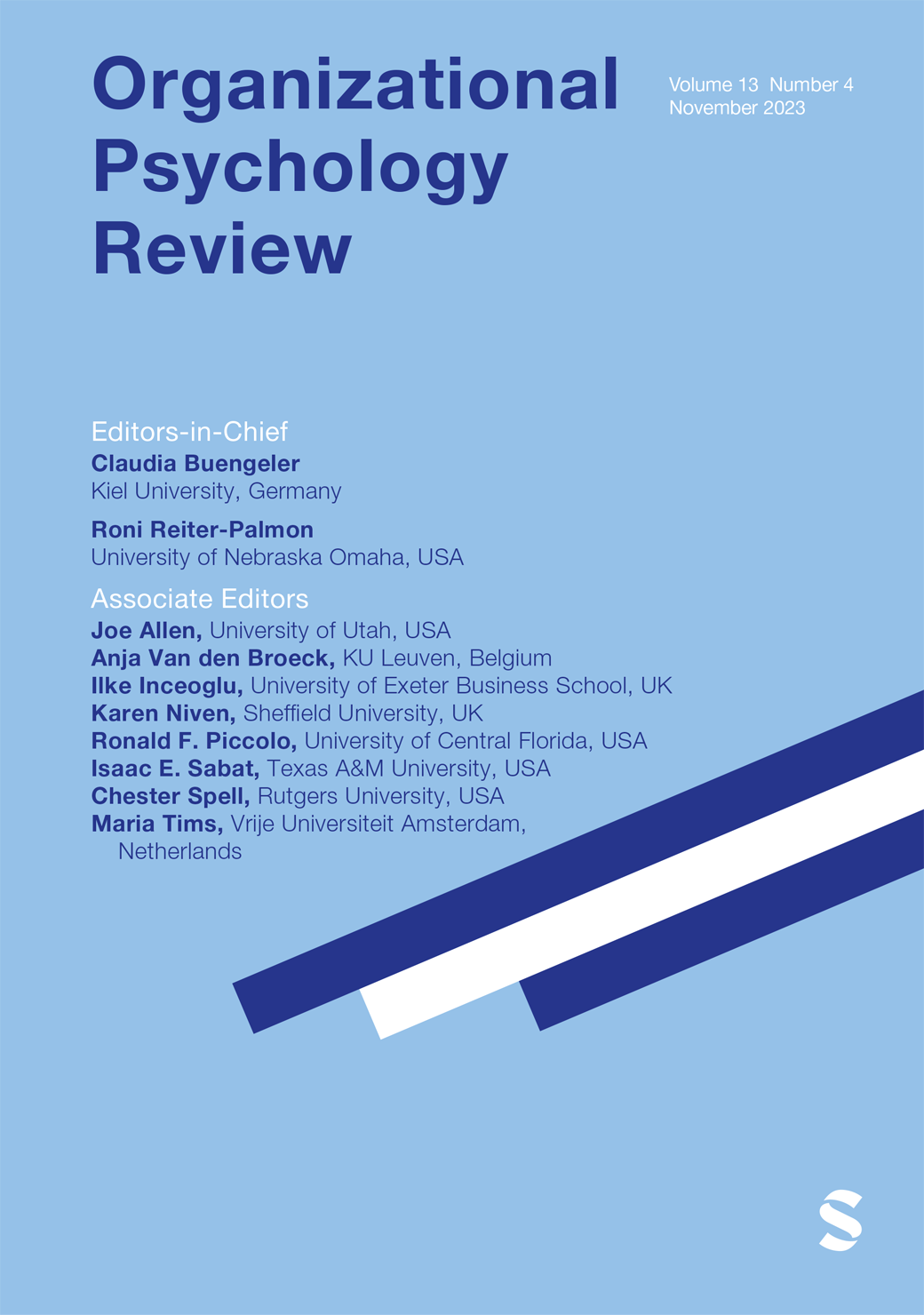Multiple Pathways to Leadership: A Revision and Extension of the CIP Leadership Framework
IF 7.1
1区 心理学
Q2 MANAGEMENT
引用次数: 0
Abstract
The charismatic, ideological, and pragmatic (CIP) theory of leadership emphasizes an equifinality approach to leading, where a diverse set of styles are theorized to serve as viable routes to leader influence and success. The theory has received substantial support and attention over the past 15 years, yet there is a need to address key limitations and expand on insights from recent reviews to offer a revised and extended version of the CIP theory. We offer that each leader type emphasizes varying influence mechanisms resulting in differing dominant reactions from followers. In addition, we discuss the importance of considering mixed pathways as a key avenue for future iterations of the framework. Our proposed model addresses several criticisms of modern leadership theories by specifying how different leadership approaches elicit varying dominant follower motivational and effort mechanisms.领导力的多种途径:CIP 领导力框架的修订与扩展
魅力型、意识形态型和务实型(CIP)领导理论强调的是一种平等的领导方法,在这种方法中,一系列不同的风格被认为是领导者施加影响和取得成功的可行途径。在过去的 15 年中,该理论得到了广泛的支持和关注,但仍有必要解决一些关键的局限性,并在近期评论的基础上,对其进行扩展,以提供一个经过修订和扩展的 CIP 理论版本。我们认为,每种类型的领导者都强调不同的影响机制,从而导致追随者做出不同的主导反应。此外,我们还讨论了将混合途径作为未来迭代框架的关键途径的重要性。我们提出的模型明确了不同的领导方法如何引发追随者不同的主导动机和努力机制,从而回应了对现代领导理论的一些批评。
本文章由计算机程序翻译,如有差异,请以英文原文为准。
求助全文
约1分钟内获得全文
求助全文
来源期刊

Organizational Psychology Review
Multiple-
CiteScore
10.00
自引率
1.60%
发文量
25
期刊介绍:
Organizational Psychology Review is a quarterly, peer-reviewed scholarly journal published by SAGE in partnership with the European Association of Work and Organizational Psychology. Organizational Psychology Review’s unique aim is to publish original conceptual work and meta-analyses in the field of organizational psychology (broadly defined to include applied psychology, industrial psychology, occupational psychology, organizational behavior, personnel psychology, and work psychology).Articles accepted for publication in Organizational Psychology Review will have the potential to have a major impact on research and practice in organizational psychology. They will offer analyses worth citing, worth following up on in primary research, and worth considering as a basis for applied managerial practice. As such, these should be contributions that move beyond straight forward reviews of the existing literature by developing new theory and insights. At the same time, however, they should be well-grounded in the state of the art and the empirical knowledge base, providing a good mix of a firm empirical and theoretical basis and exciting new ideas.
 求助内容:
求助内容: 应助结果提醒方式:
应助结果提醒方式:


